International donors are jumping at the chance to aid people
inside Myanmar as sanctions ease. But refugees just outside the country
are on the losing end.
Christian Science Monitor
The European Union joined the rest of the West today, loosening trade sanctions against Myanmar (Burma) as a reward for all of its recent reforms. The easing sanctions are widely seen as another positive step for the country.
The recent reforms inside Myanmar may be highlighting the country's promise, however, some nongovernmental organizations providing aid to refugee camps for the past 20 years on the Thai-Myanmar border in Thailand have lost funding, and it's hitting refugees hard.
Nearly 150,000 refugees have fled civil war in eastern Myanmar citing oppression and human rights abuses over the past two decades. They live in tent camps, are not permitted to work in Thailand, are afraid to return to Myanmar, and depend on international aid to survive.
“Before we were in a very difficult position but at least we had the food that we needed,” says Saw Eh So, a refugee. “Now we have to find ways to find the food ourselves.”
While the worldwide economic recession put a significant amount of pressure on donors, forcing them to reduce their support for border-based aid groups, analysts say that providing aid to groups inside Myanmar has become more attractive for donors.
“We have definitely noticed a shift,” says Francois Noisten, who has been working on the border for 20 years treating malaria. While not losing any funding for his organization, Mr. Noisten says, “Funders are more interested in funding inside than they were before.”
According to the Thai Burma Border Consortium (TBBC) responsible for
providing food rations to the refugees, the reduction in funding has had
several negative effects on the camps in Thailand. “The refugees have
to go out for food the increased mobility puts them at risk,” Noisten
says. Because the refugees are undocumented they are at high risk of
being exploited by local communities or forced to return to war zones in
Myanmar's Karen state to get work or food. “There are also nutritional
issues, they are receiving less nutrition than what they should be
receiving,” he says.
Another major concern is the effect the funding reduction has on education. The Karen Refugee Committee - Education Entity (KRC-EE) which oversees education in the camps, has also lost much of its funding for running the education services in the camps.
“Since the funding reductions started we have lost over 60 percent of our annual funding,” said Law Plah Min secretary of the KRC-EE.
“As a result we have been unable to pay teachers accordingly, students do not have the necessary equipment, and the quality of education has been severely reduced,” says Law Plah Min.
Teachers, like most members of the camp haven’t been able to afford food, which has made it difficult for them to keep working in the schools.
“We have lost many good teachers who had to find other jobs in order to survive,” says Law Plah Min.
This might not be a bad thing in the long run. In recent months, Burmese people have enjoyed a sense of freedom many have never experienced before. Western philanthropic groups have been reticent or unable to help fund civil society groups and NGOs working to rebuild Myanmar before now.
The ideal situation is that reform continues, the refugee camps are closed, and refugees return to their homes in Myanmar. However, many NGO workers on the border are concerned that the funding is being withdrawn too quickly, without proper withdrawal plans, and before the refugees are ready to go back.
The ethnic rebels, the Karen National Liberation Army (KNLA), have been fighting against the state since 1949, demanding self-determination and ethnic rights for the Karen people.
According to Saw La Plan, a Karen leader in Umpiem refugee camp, they will only go back when there are signs of durable peace in Karen state. “While there is still fighting, no development, and landmines everywhere we have to stay here,” he says sitting outside his hut. “We just cannot live over there without [the] guarantee of our safety.”
On April 6, the Karen National Union (KNU) completed its second round of cease-fire talks with the Burmese government. For the first time KNU leaders met with Myanmar President Thein Sein, showing that the government might be genuine about wanting to achieve a cease-fire.
According to Sally Thompson from the TBBC, the cease-fires are a step in the right direction. She doesn't see the camps still being open in five years time, but still, she voiced her doubt.
“Cease-fires are only the beginning of a process of peace building and national reconciliation. There must be political dialogue,” Ms. Thompson says.
“It is a long road ahead to build trust after 60 years of conflict. The government will have to deliver significant improvements in the daily lives of people in former conflict areas to demonstrate their sincerity. “
Another major concern is the effect the funding reduction has on education. The Karen Refugee Committee - Education Entity (KRC-EE) which oversees education in the camps, has also lost much of its funding for running the education services in the camps.
“Since the funding reductions started we have lost over 60 percent of our annual funding,” said Law Plah Min secretary of the KRC-EE.
“As a result we have been unable to pay teachers accordingly, students do not have the necessary equipment, and the quality of education has been severely reduced,” says Law Plah Min.
Teachers, like most members of the camp haven’t been able to afford food, which has made it difficult for them to keep working in the schools.
“We have lost many good teachers who had to find other jobs in order to survive,” says Law Plah Min.
This might not be a bad thing in the long run. In recent months, Burmese people have enjoyed a sense of freedom many have never experienced before. Western philanthropic groups have been reticent or unable to help fund civil society groups and NGOs working to rebuild Myanmar before now.
The ideal situation is that reform continues, the refugee camps are closed, and refugees return to their homes in Myanmar. However, many NGO workers on the border are concerned that the funding is being withdrawn too quickly, without proper withdrawal plans, and before the refugees are ready to go back.
The ethnic rebels, the Karen National Liberation Army (KNLA), have been fighting against the state since 1949, demanding self-determination and ethnic rights for the Karen people.
According to Saw La Plan, a Karen leader in Umpiem refugee camp, they will only go back when there are signs of durable peace in Karen state. “While there is still fighting, no development, and landmines everywhere we have to stay here,” he says sitting outside his hut. “We just cannot live over there without [the] guarantee of our safety.”
On April 6, the Karen National Union (KNU) completed its second round of cease-fire talks with the Burmese government. For the first time KNU leaders met with Myanmar President Thein Sein, showing that the government might be genuine about wanting to achieve a cease-fire.
According to Sally Thompson from the TBBC, the cease-fires are a step in the right direction. She doesn't see the camps still being open in five years time, but still, she voiced her doubt.
“Cease-fires are only the beginning of a process of peace building and national reconciliation. There must be political dialogue,” Ms. Thompson says.
“It is a long road ahead to build trust after 60 years of conflict. The government will have to deliver significant improvements in the daily lives of people in former conflict areas to demonstrate their sincerity. “





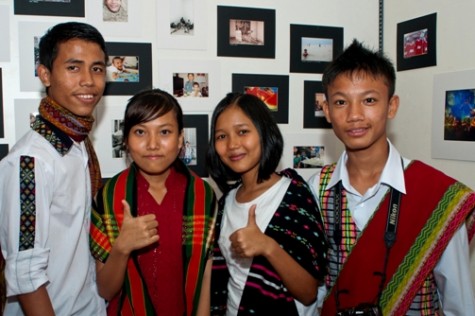
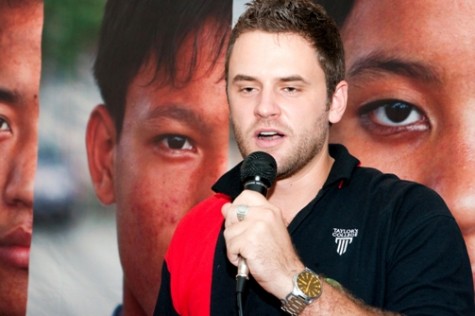
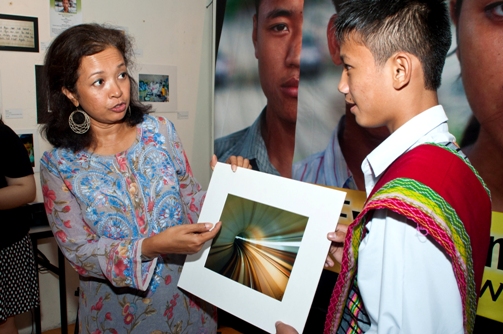
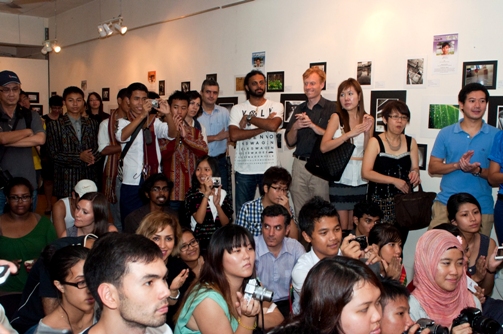
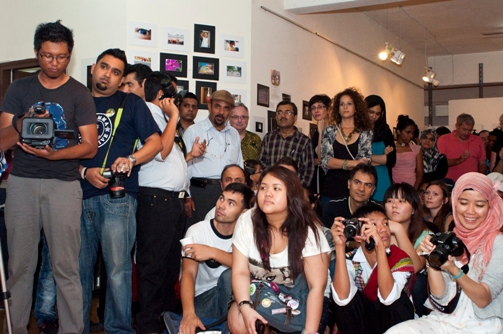
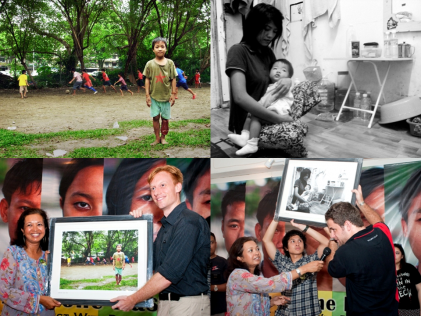
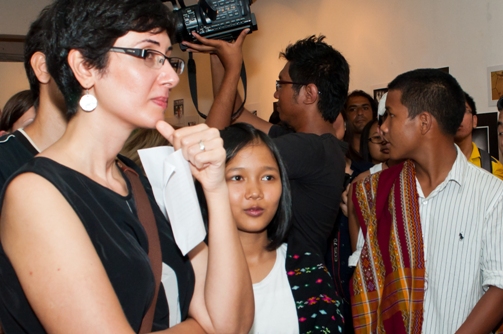
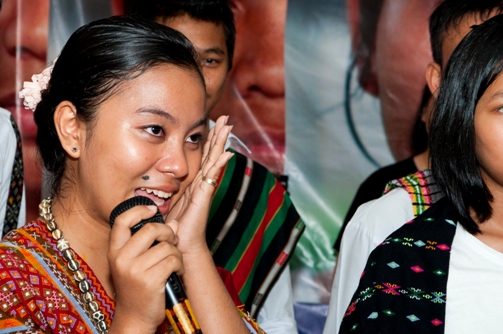
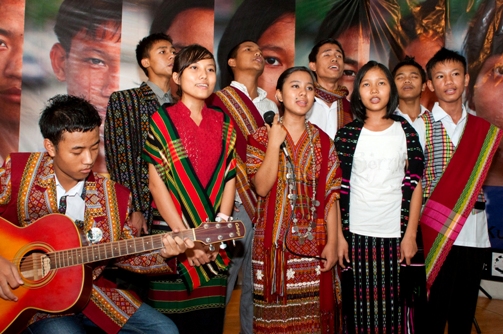




 KUALA LUMPUR, April 6 — The one thing refugees need to get them through the ordeal of trying to find a new home? Hope.
KUALA LUMPUR, April 6 — The one thing refugees need to get them through the ordeal of trying to find a new home? Hope.